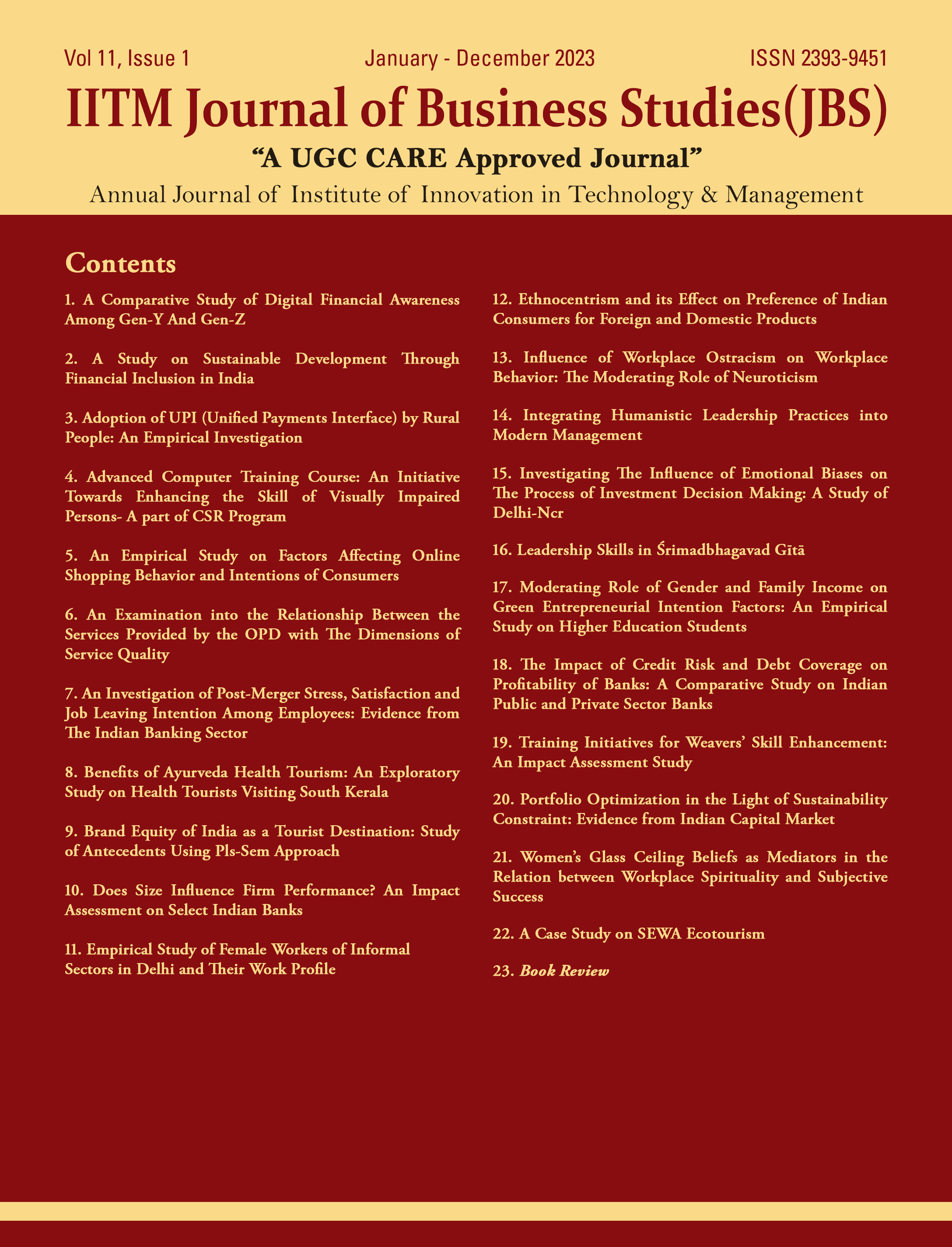A STUDY ON THE ORIENTATION OF SELECTED ETHNIC COMMUNITIES TOWARDS BUSINESS ETHICS )AN EMPIRICAL STUDY
Keywords:
ethnic, ethics, egoism, utilitarianism, deontologyAbstract
The paper makes an effort to study the role of four theoretical approaches to business ethics under consideration namely Utilitarianism, Managerial egoism, Deontological Ethics and Virtue Ethics on three prominent ethnic groups namely Bodo, Mishing and Rabha. The study was exploratory cum descriptive in nature and conducted on a sample of 1200 respondents comprising of 400 respondents from each community. Stratified cum convenience sampling technique was used with a structured questionnaire schedule for field study in the state of Assam. The field study found that the people of the Bodo community are highly influenced by Managerial Egoism and Deontological Ethics whereas the people of the Mishing community are highly influenced by Utilitarianism and Virtue Ethics. Lastly the people of the Rabha community are influenced by a mixture of Managerial Egoism, Deontological Ethics and Virtue Ethics. These are vital input for managers in taking important decisions in the field of management.
References
Autenrieth, N. (2015). Ethics: A ‘Tribal’ Perspective, Building Trust & Ethics, November 2, 2015. 2. Baines, P., Fill, C., & Page, K. (2013). Marketing, Sustainability and Ethics, Marketing, Chapter 20, pp. 648, Publisher Oxford University Press, 2013 Asian Edition
Bose, I. (2019). Business Ethics and Consumer Buying: An Ethno-Regional Study in UAE, Ushus - Journal of Business Management, 18(4), pp. 23-40, ISSN 0975-3311.
Baumhart, R. C. (1961). How Ethical are Businessmen?’, Harvard Business Review 39(4), 6–19, pp. 156–176.
Ho, J. A. (2010). Ethical Perception: Are Differences Between Ethnic Groups Situation Dependent? Business Ethics: A European Review, April 2010, pp. 154-182.
NCERT Supplementary Reader (2017). North East India: People, History and Culture. New Delhi, National Council of Educational Research and Training, April 2017 Chaitra, 1939, PD 1T BS. ISBN 978-93-5007-839-6.
Nunnally, J. C. (1978). Psychometric theory (2nd ed.). New York: McGraw-Hill. 8. Morris M., Schindehutte, M., & Lesser, J. (2002). New England Journal of Entrepreneurship, · March 2002, vol. 5, number 2, article 7.
Suharnomo, N. A., & Syahruramdhan, F. (2018). Cultural Value Differences Among Ethnic Groups in Indonesia: Are Hofstede’s Indonesian findings still relevant? Journal for Global Business Advancement, 11. 6. 10.1504.
Sharma, T. & Dudeja, M. (2013). Business Ethics in SMEs: An Empirical Study of Selected Units of Haryana, International Journal of Indian Culture and Business Management, 7(3). 11. Sharma, R. & Sharma, B. (2009). Ethics in Retailing: Perceptions of Consumers, Conference Proceedings, International Marketing Conference on Marketing & Society, 8-10 April, 2007, IIMK. 12. Scholtens, B. & Dam, L. (2007). Cultural Values and International Differences in Business Ethics, Journal of Business Ethics, doi: 10.1007/s10551-006-9252-9.

